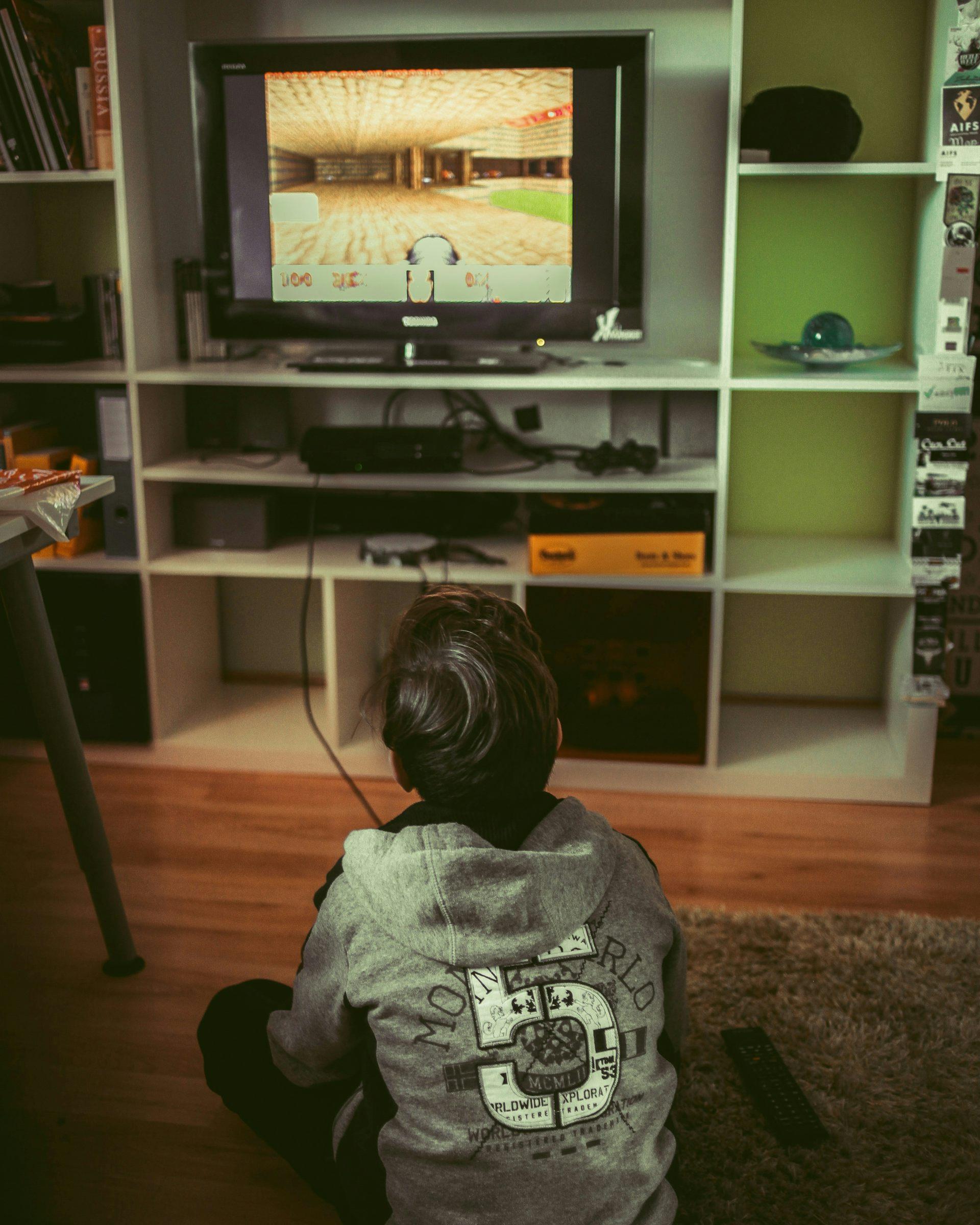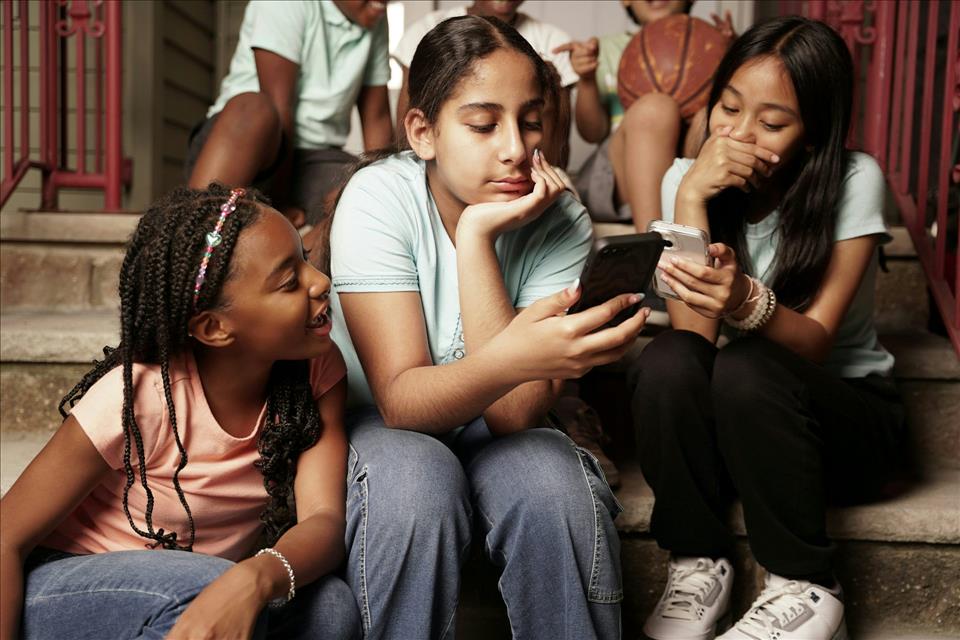Québec's School Cellphone Ban Won't Solve The Challenges Of Family Tech Use
With stories ranging from teenage suicide after conversations with ChatGPT to allegations of child exploitation on Roblox feeding parental anxiety, policymakers worldwide have been responding to rising concerns about the effects of digital technology on youth.
But as researchers of everyday technology use, we argue that a ban alone overlooks a key challenge that families face: once children return home for the day, parents must independently manage tech-related negotiations. But because much of children's online activities are hidden, it's difficult to set boundaries and maintain open communication.
Parents need digital literacyAccording to l'Observatoire de la parentalité et de l'éducation numérique, a think tank based in France, 53 per cent of parents believe that they lack support when it comes to the digital education of their children .
Our research shows that the issue isn't just screen time, but the invisibility of children's activity that fuels household conflicts.
For example, a teenager we interviewed used gaming to stay in touch with friends, but his mother saw it as a way to isolate himself. A simple conversation might have eased tensions, but the stigma around gaming made it harder.
These misunderstandings widen the digital literacy gap between parents and children.
Thinking beyond screen timeScreen time alone doesn't tell us much about youth's online activities. Some studies link moderate use rather than none - roughly an hour a day - to lower depression rates , and show that digital platforms can foster more diverse and inclusive friendships than offline ones. Context matters: what children are doing, with whom, and under what conditions.

Gaming isn't necessary a solitary experience. (Unsplash)
Focusing on gaming, our study explored how families experience technologies at home.
We found that parents worry not only about gaming itself - often seen as isolating and unproductive - but also about how it disrupts routines. A child refusing to quit a game for dinner is one example. Because technologies are designed to absorb the user, their impact on others in the household is often overlooked.
The challenge of invisibilityThese struggles are worsened by the invisibility of online activity. Watching a child at a screen offers no insight into whether they are bonding with friends, arguing with strangers or facing harm.
We found that this opacity complicates household negotiations.
Parents certainly do set limits:“one hour of gaming,”“no phone after 9 p.m.,” but without understanding gaming dynamics, these rules can feel arbitrary and unfair to teens.
In our study, players were often caught between competing demands: leaving mid-session could mean penalties or letting down teammates, while staying online clashed with family expectations like coming to dinner. These clashes left parents feeling disrespected and children feeling misunderstood.
Why bans fall shortFrom a policy perspective, banning devices in classrooms may reduce distractions, but it does little to help families manage tech use at home, where tensions quickly resurface.
Evidence from abroad shows bans rarely solve deeper issues.
In Australia, for example, where several states restrict phones in schools, researchers warn such measures shouldn't altogether replace broader digital literacy efforts .
Fostering literacy and dialogueIf we want to support families, we need to better understand the hidden aspects of digital life. This means helping parents develop the literacy to ask informed questions, grasp usage contexts and negotiate fair rules.
Phones and gaming consoles are often treated as private devices which leaves parents guessing about what's happening behind the screen. Dialogue helps, but parents need specific support systems.
In Québec, for example, Vidéotron has partnered with CIEL to offer tools that help families discuss and manage phone use .
In our study of competitive gamers, we found that such initiatives show how intermediaries can act like coaches: guiding youth and adults toward healthier, more balanced tech practices. Rather than leaving families to navigate this alone or relying solely on school bans, structured support can make the invisible side of technology more manageable.
Supporting parents and their digital literacy is helpful to everyone. (Unsplash)
It also means recognizing that technology use is rarely solitary. A child gaming is connected to peers; a teen scrolling social media is navigating complex social pressures. By acknowledging these connections, parents can move beyond screen-time limits toward conversations about safety and balance.
Our research shows that when families can talk openly about online life, even if parents don't fully understand the platforms, tensions ease and rules become easier to follow.
Where do we go from here?Technology will always evolve faster than policy. And while bans may offer short-term relief, they're no substitute for open dialogue, digital literacy and patient understanding at home.
As the new school year begins, the real challenge isn't just deciding whether phones belong in class.
It's finding realistic ways to support families in navigating a digital world where much remains hidden from view.

Legal Disclaimer:
MENAFN provides the
information “as is” without warranty of any kind. We do not accept
any responsibility or liability for the accuracy, content, images,
videos, licenses, completeness, legality, or reliability of the information
contained in this article. If you have any complaints or copyright
issues related to this article, kindly contact the provider above.
Most popular stories
Market Research

- Bitcoin Adoption On Sui Accelerates As Threshold Network And Sui Launch Phase 2 Of Tbtc Integration
- Meme Coin Little Pepe Raises Above $24M In Presale With Over 39,000 Holders
- Schoenherr Welcomes Top-Tier CEE English Law Debt Finance Team
- Japan Buy Now Pay Later Market Size To Surpass USD 145.5 Billion By 2033 CAGR Of 22.23%
- United States Insulin Pumps Market Forecast On Share & Demand Mapping 20252033
- Mediafuse Joins Google For Startups Cloud Program To Scale AI-Driven, Industry-Focused PR Distribution






















Comments
No comment